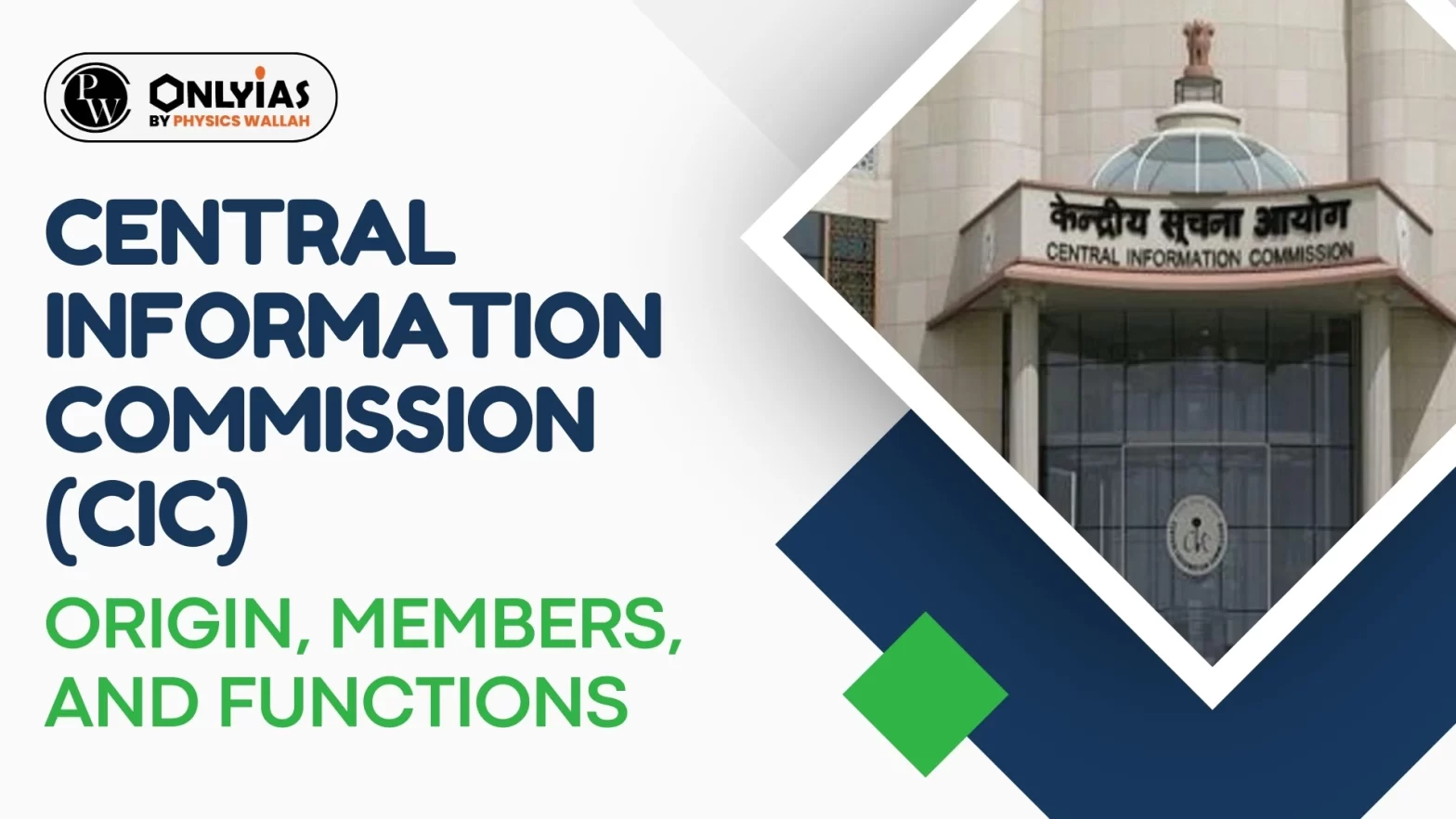The Central Information Commission (CIC) is a statutory body to act upon complaints received from individuals who have not received satisfiable responses under the Right to Information Act (RTI Act).

Provisions: The Central Information Commission (CIC) is a statutory body to act upon complaints received from individuals who have not received satisfiable responses under the Right to Information Act (RTI Act).
| Must Read | |
| NCERT Notes For UPSC | UPSC Daily Current Affairs |
| UPSC Blogs | UPSC Daily Editorials |
| Daily Current Affairs Quiz | Daily Main Answer Writing |
| UPSC Mains Previous Year Papers | UPSC Test Series 2024 |
Central Information Commission (CIC) is a statutory body authorized body in India to act upon complaints received from individuals who have not received satisfiable response under the Right to Information Act (RTI Act).
The President of India appoints commissioners based on the recommendation of a committee consisting of the Prime Minister (Chairperson), the Leader of Opposition in the Lok Sabha, and a Union Cabinet Minister nominated by the Prime Minister.
The Chief Information Commissioner has tenure of five years or until they attain the age of 65 years, whichever is earlier. They are not eligible for reappointment.
RTI is an act that aims to empower citizens, promote openness and accountability in government functions, combat corruption, and realize true goals of democracy
The act covers “public authorities” which includes authorities, bodies, institution of self government which is formed: by the Constitution by a law of Parliament or a State Legislature by a notification of the State or Central Governments
Information that can affect the sovereignty and the integrity of India is exempted from the purview of RTI. Information such as internal security, relations with foreign countries, intellectual property rights (IPR), cabinet discussions do not come under the ambit of RTI.
<div class="new-fform">
</div>